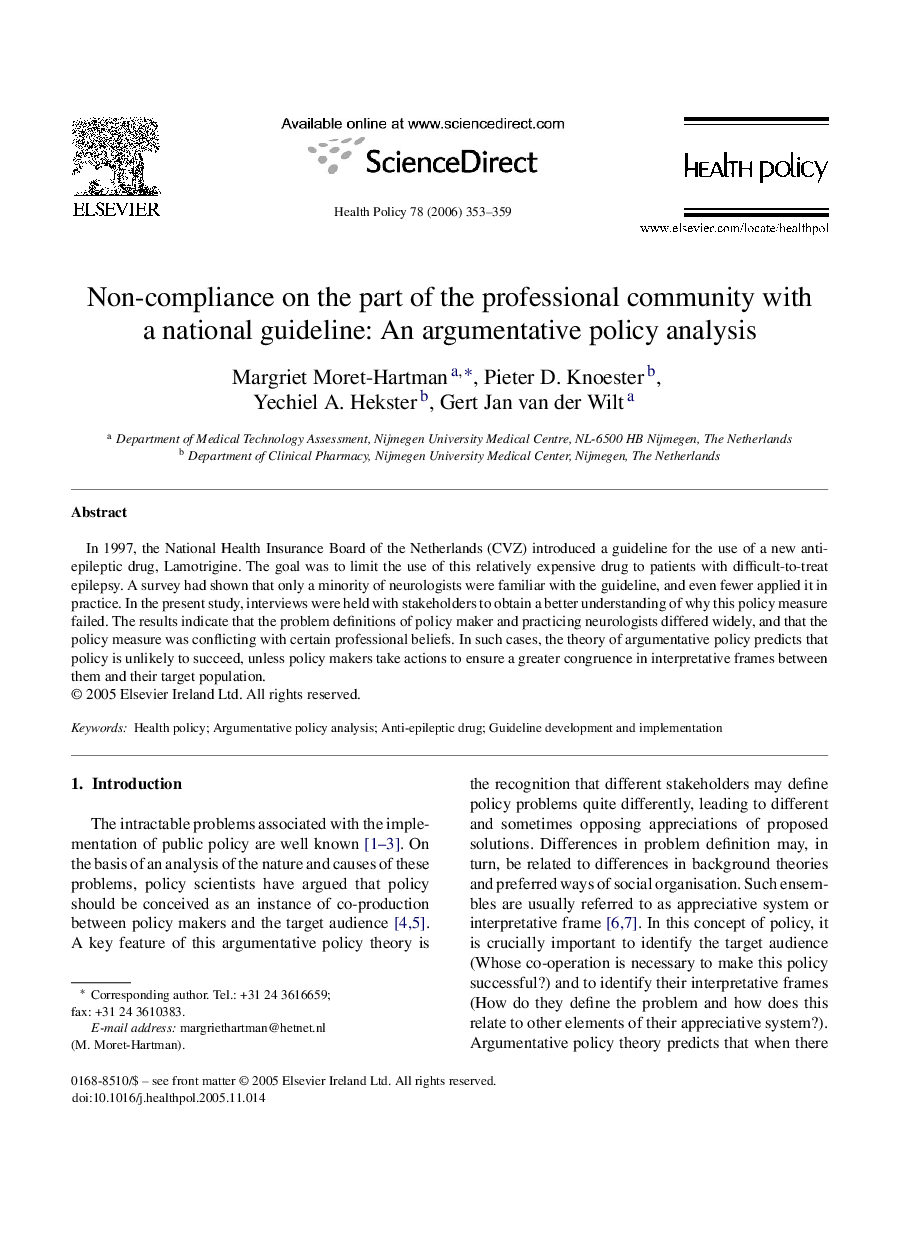| Article ID | Journal | Published Year | Pages | File Type |
|---|---|---|---|---|
| 4199037 | Health Policy | 2006 | 7 Pages |
In 1997, the National Health Insurance Board of the Netherlands (CVZ) introduced a guideline for the use of a new anti-epileptic drug, Lamotrigine. The goal was to limit the use of this relatively expensive drug to patients with difficult-to-treat epilepsy. A survey had shown that only a minority of neurologists were familiar with the guideline, and even fewer applied it in practice. In the present study, interviews were held with stakeholders to obtain a better understanding of why this policy measure failed. The results indicate that the problem definitions of policy maker and practicing neurologists differed widely, and that the policy measure was conflicting with certain professional beliefs. In such cases, the theory of argumentative policy predicts that policy is unlikely to succeed, unless policy makers take actions to ensure a greater congruence in interpretative frames between them and their target population.
